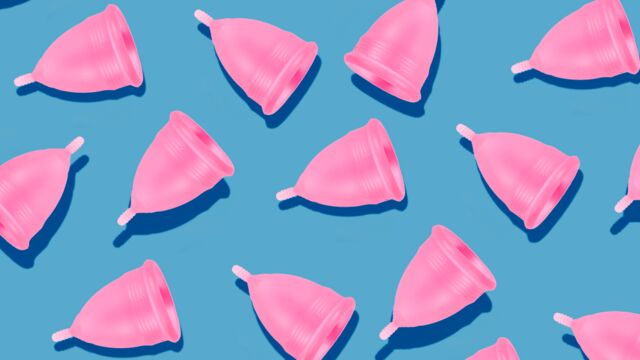For many of us, our first inkling of education around menstruation occurs in the classroom. Teachers would separate the girls from the boys and disclose to us the harsh realities of having a vagina - mainly that we’d be bleeding out of it once a month for most of our lives.
Discover our latest podcast
These classes inevitably gave way to rumours that period blood was dirty or that women shouldn’t swim in the ocean during that time of the month, lest they attract a shark. Of course, most of these confusions get shaken off after a few years. But some period myths tend to slip through the cracks into common knowledge, like the idea that womens’ periods can sync up (spoiler, they probably can’t).
The truth is, many of us have much to learn about our periods, so why not start by debunking some of the most common myths?
1. Tampons can get lost in your vagina: False
Tampons and menstrual cups can be intimidating for some, but contrary to popular belief, you can’t lose a tampon in your vagina.
The cervix, which sits at the top of the vaginal canal, isn’t big enough for a tampon or a menstrual cup to pass through, so once you insert one of these items into your vaginal canal, they tend to stay in place until taken out.
However, while you won’t be able to lose a tampon down there, some people do have incidents where they cannot remove them. If this is the case, it’s best to contact your GP or visit a sexual health clinic.
2. You shouldn’t swim while on your period: False
Even if you’re on your period, you can still take a dip in the water, with some people even finding it helps to reduce menstrual pain and cramping.
If you’re looking to go for a swim while on your period and are worried about any leaking, try opting for a tampon or menstrual cup.
3. Periods can attract sharks: False
For those who enjoy an ocean swim, you don’t have to worry about the smell of your period attracting sharks. While sharks can smell blood, studies have shown that they don’t generally interpret this scent as their dinner bell, and no correlations have ever been drawn between shark attacks and menstruation.
4. You can’t get pregnant during your period: False
Period’s aren’t the most fertile period of our menstrual cycle, but it’s certainly still possible to get pregnant while you’re menstruating.
The general idea is that people are at their most fertile during ovulation which generally occurs around the 14th day of the menstrual cycle. However, if you ovulate early when you’re on your period or mistake breakthrough bleeding as menstruation, it’s possible to get pregnant.
Sperm can also live in the body for up to 72 hours, so chances of getting pregnant can increase towards the end of your period.
If you’re not looking to conceive, the best way to make sure you don’t get pregnant is to use forms of contraception such as condoms or birth control pills.
5. You shouldn’t exercise on your period: False
Cramps, bloating, and back pain can make exercise the last thing on your mind during your period. However, gentle aerobic exercises like walking and light yoga can help reduce these symptoms.
6. Your period can be stopped by drinking water: False
Drinking water won’t stop your period. But, studies have shown that drinking lots of water and staying well hydrated during your period can help reduce cramps and prevent period blood from thickening, helping your cycle move a tiny bit faster.
7. Periods should last for exactly one week each month: False
While we often interpret periods as lasting for one week each month, this isn’t generally the case. Periods typically last anywhere from two to seven days. How long your period lasts can depend on physical or mental stress, weight loss, illness and even lifestyle habits such as smoking.
8. Pain on your period is normal: False
Periods often come with some cramping, bloating and muscle aches, but there is a line. If your pain is so intense that it stops you from going about your daily life, this could be a sign of an underlying health condition, and you should check in with your GP.
9. If you use a tampon, you’re no longer a virgin: False
Virginity is an outdated concept that separates women who have had penetrative sex from those who haven’t, but tampons aren’t sexual, and neither are periods. Tampons are entirely safe to use during menstruation and don’t affect someone’s sexual activity. Just make sure to follow the instructions on the pack and change out your tampon regularly.
10. Your uterus will ‘get backed up’ if you skip your period too often: False
Firstly, those on hormonal birth control, such as pills, already have suppressed periods, and what they usually experience is actually known as withdrawal bleeding. This bleeding occurs due to the decline in reproductive hormones during the ‘sugar pill’ or ‘no hormone’ week.
Hormonal birth control pills work by preventing ovulation. Without ovulation, the endometrium doesn’t thicken with blood and tissue, so when that time of the month comes, there’s nothing for your endometrium to shed. This means, even if you skip your period, your uterus won’t get ‘backed up.’
However, if you do skip your period often, you may experience some breakthrough bleeding.















